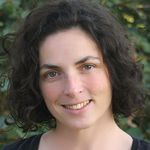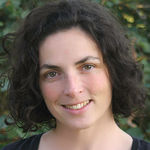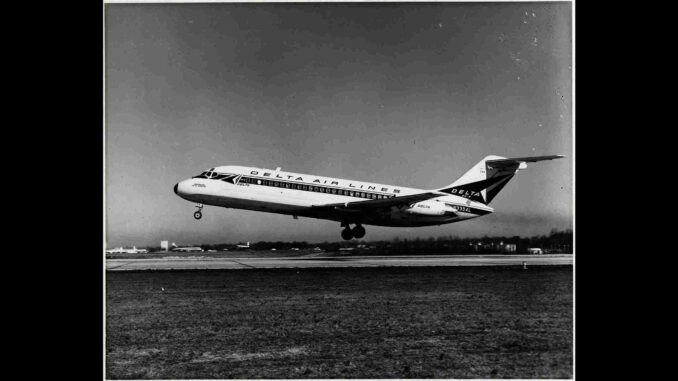The African bush has long been seen as a “man’s world,” but things are starting to change. A new generation of female safari guides is stepping up to drive safari vehicles, lead and inform travelers and protect wildlife across sub-Saharan Africa. These women not just part of the safari industry; they bring a fresh perspective to guiding and conservation.
Becoming a guide is not always easy for women in Africa who are up against decades of preconceptions. I discovered this first-hand on a recent visit to the Okavango with African Bush Camps. The guide-in-training, Sharon Mohlambi, who accompanied us on game drives expertly tracked everything from lions to leopards. However, she faced obstacles many men do not. “Not having a driver’s license is the biggest hurdle for women guides in Africa,” said Mohlambi, who does have her license and handled the jeep like a pro on my visit. “Families often don’t train daughters, but a license brings almost as much freedom as education.”
• Related: Luxury redefined at Botswana’s African Bush Camps
Tswalu’s head guide, Deirdre Opie, agrees that women still face an uphill battle when they explore a career in guiding. “For women guides, it is a lot harder to prove you are capable. This includes driving a 4×4 vehicle, changing tires and handling a weapon, which have traditionally been viewed as more masculine activities,” she said.
To help women overcome barriers to guiding, African Bush Camps launched the Female Guide Program in 2021. The two-year training accepts five women annually, focusing on skills like driving and animal tracking. While African Bush Camps received 90 applicants initially, the program saw over 200 apply last year, demonstrating women’s strong desire for guiding careers despite societal limits.
“Clearly there is need; African women want to prove they deserve the same options,” said African Bush Camps’ Sylvia Zulu-Mwelwa. By 2025, African Bush Camps aims to graduate 25 female guides, enriching perspectives in a male-dominated field.
Playing vital roles
The drive for change isn’t limited to the African Bush Camps or the Okavango. Across Africa, from the Serengeti to Chobe, women are leading the way. All-female anti-poaching units like Akashinga’s “Brave Ones” in Zimbabwe and the Black Mambas in South Africa are redefining conservation efforts.
Recognizing women’s unique strengths as guides, many safari companies across Africa are now introducing empowerment initiatives.
“Women tend to have more empathy and intuition for guests’ needs,” said Opie. “We are more cautious around animals and less worried about our egos.”
Graham Vercueil, field manager for luxury operator AndBeyond, said he agrees that female guides excel at anticipating travelers’ needs. AndBeyond employs 23 women guides at lodges across East and Southern Africa. “Women are equipped to do anything the men can, often better,” said Vercueil.
• Related: Africa’s defining travel trend for 2024
It’s fascinating to see how this evolution of female guides aligns with the changing dynamics of travel, such as, for example, the rising trend of solo female travel. Female guides tap into the solo female traveler’s desire for authentic, relatable, and safe adventures. Reports suggest a significant uptick in solo travel among women, with organizations like Road Scholar and Booking.com noting that more women are choosing to travel independently, seeking out experiences that resonate on a deeper level.
“Female guests do enjoy female guides and are very impressed with their confidence, skills and competencies and intuitive ways of conducting game drives,” said Singita spokeswoman Lisa Carey, who added that “female guides are more intuitive, gentle and embrace our ethos easily.”
“Guests are very excited to be guided by women. I think it makes people happy to see female guides when they visit,” said Yasinta Mabula, assistant manager at Asilia Africa’s Dunia Camp, Africa’s First All-Female-Run Safari Camp. “We have found that female clients like to have other females around rather than an entirely male work force especially when traveling alone or in small groups.”
Opened in 2016, Dunia Camp employs only women to become chefs, guides, managers and housekeepers. Some are mothers and wives, some are young and single. These “Dunia Angels,” as the camp calls them, have traded in their traditional lives and leave their homes for months at a time to work in the dangerous bush, to be independent and support their families.
• Related: Back to basics at Asilia Africa’s Kokoko Camp
As women increasingly enter the guide ranks, they bring new perspectives that travelers enjoy. “Both women and men can be highly knowledgeable about a place or experience, but females are more attentive to the needs of guests. They uncover guests’ feelings easier and think of things instinctively like, ‘My guest has children in the car; let’s put toys for the kids to play’ or, ‘It’s warm out now, let’s bring some water,” said Mabula.
According to Mohlambi and the female guides-in-training, female guides also bring more nuance to game drives. They tend to be more in tune with the entire nature ecosystem and appreciate the value of the different types of flowers and trees. They are more likely to share stories about the medicinal uses of the different plants and share typical African traditions.
It is great to see a new generation of female guides embracing the tourism industry and bringing new perspectives to the industry





